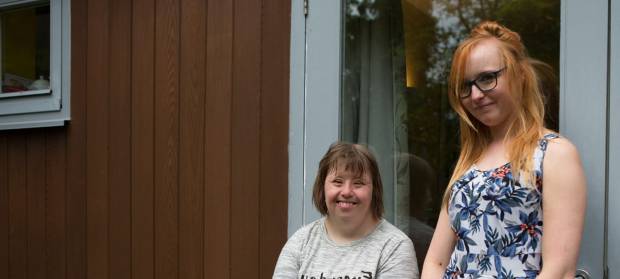Getting the right support is crucial to help you think about the future
After a diagnosis, it is important to make sure you and your family get the right support, as you start to come to terms with your child's needs and the adjustments you have to make as a family.
Close family and friends can be a good source of emotional support, although some people find talking to a GP, healthcare worker or counsellor easier at this stage.
Healthcare professionals
During and after diagnosis, you may come into contact with a number of different healthcare workers, including GPs, obstetricians, paediatricians, occupational therapists, health visitors and portage workers.
Parents have told us that while some professionals are exceptionally helpful, others can be insensitive or fail to give timely or accurate information. Don't be afraid to ask exactly how each person is helping your child, and get them to repeat any information you have missed.
National organisations and support groups
Getting in touch with national and local organisations can help you to deal with a diagnosis, and can be a valuable way of getting support and advice.
Making contact with organisations that support people with your child's specific condition can be especially helpful. Take a look at our conditions pages for more information or contact the Learning Disability Helpline for details of these.
Many parents say that talking to other people in a similar situation is a big help. Sharing your experiences with others can be valuable and rewarding, and can remind you that you are not alone.
You can contact other families via our online community or a local group.
You may also want to get in touch with Contact, a charity that offers advice, information and support to parents of disabled children and enables them to contact other families locally and nationally.
Professionals you might come into contact with
If your child has been diagnosed with a learning disability, you may end up having appointments with a whole range of professionals.
We've listed some below to help you keep track of what they all do and how they can help you:
- Benefits advisers - provides information on benefits for people with a learning disability and family carers.
- Child psychiatrist - works with children and young people with mental health problems.
- Clinical psychologist - supports children in learning new skills.
- Community team for learning disabilities - a team made up of professionals and therapists, that provides information and assistance.
- GP - your GP will often be your first point of contact, and will be able to refer your child to other specialists if required.
- Health visitor - will check on your child's health and development through visits to the family home.
- Learning disability associations and support groups - provide information and advice, and can put parents and family carers in touch with others in a similar situation.
- Paediatrician - specialises in children's health and development.
- Portage worker - helps your child develop certain skills through play and home visits
- Social worker - can offer help and advice in getting you and your child the support you need.
- Special educational needs co-ordinator (SENCO) - creates a supportive learning environment for special needs pupils at school.
- Specialist health visitor - specialist health visitors have knowledge of special needs and can provide help and advice.
- Therapists - these might include:
- speech and language therapist - helps with communication problems
- occupational therapist - helps with everyday tasks
- physiotherapist - helps with movement.
- Voluntary organisations - provide information, support and advice.
How to get the support you need
Contact the Learning Disability Helpline, our advice and support line, for guidance and information about what support we can offer you.
Or why not take a look at our online community? This is a place for parents and family carers of people with a learning disability to share experiences, advice and support.
